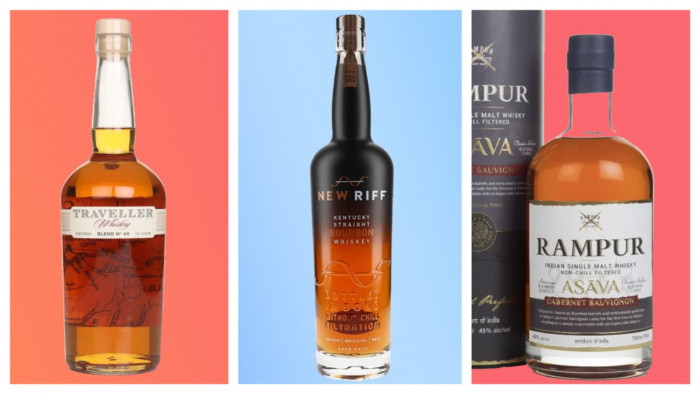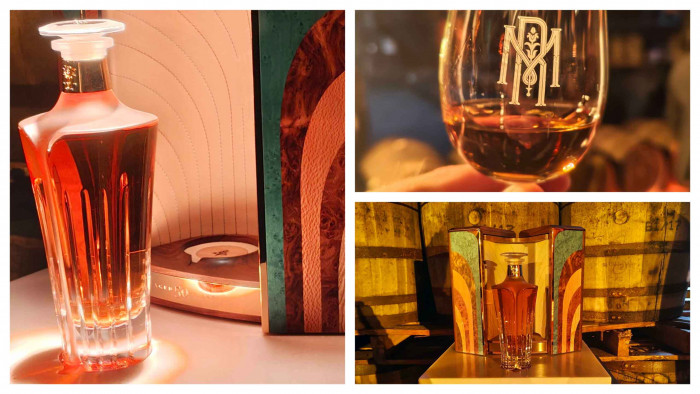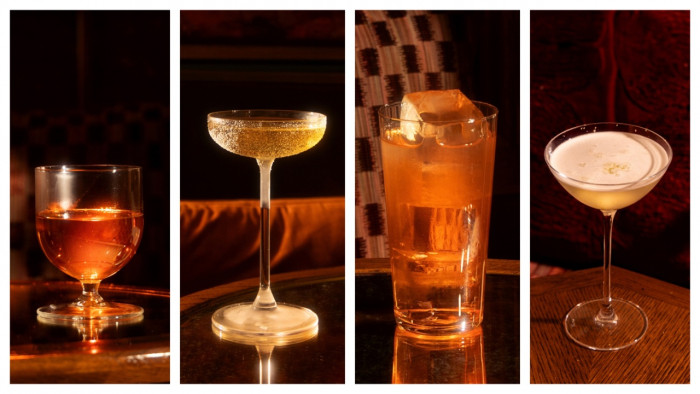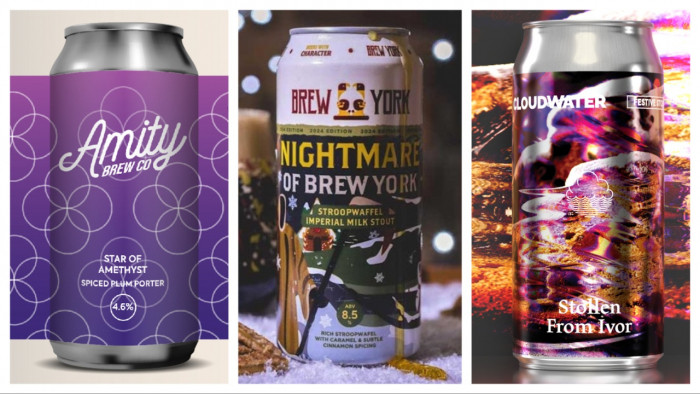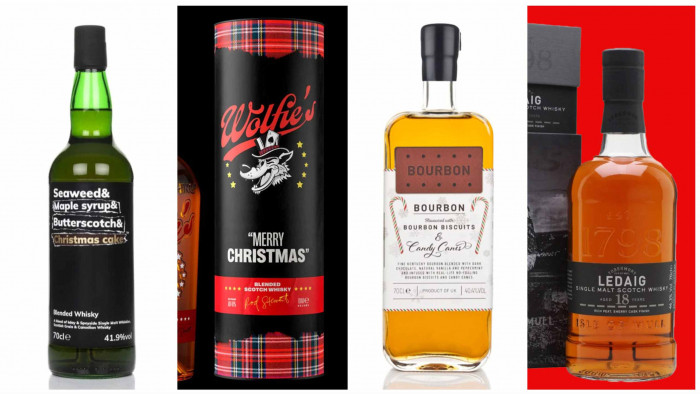Drunken Bakers is a masterpiece.
A recurring strip in Viz created by writer Barney Farmer and artist Lee Healey, it’s the bleak, unflinchingly brutal ongoing tale of two pissed-up breadmakers (the clue is in the title really), not even friends, boozing their way mirthlessly towards oblivion one bottle of room-temperature white cider at a time. It’s been the subject of an exhibition at the Tate Britain, and its absurdity, pathos and nihilism have seen it compared to the work of literary greats.
Now Farmer has written a book, Drunken Baker, published by Wrecking Ball Press and available now. Part stream of consciousness, part novel, part prose poem and so soaked in booze the pages almost smell, it’s a hell of a read, at once hilarious and grotesque, laugh-out-loud funny and extraordinarily depressing. We phoned him up for a look inside his deep, dark mind.

Hi Barney, congratulations on the book! It’s a hard piece of work to describe.
I tried to write the sort of book that I like to read. I’ve sat down and tried to write a conventional type of story with a beginning, a middle and an end before, in a linear narrative kind of way, but every time I’ve started it it hasn’t felt right. It hasn’t felt like a reflection of these characters. The way I’ve always written the strips for Viz starts as snatches of conversation and little thumbnail sketches here and there. I wrote the book exactly the same way.
It’s almost like one long poem.
I thought people would assume I was being pretentious - this loudmouth off Twitter who does a comic strip thinks he’s a poet now. But it comes back to how the strips are written - there are patterns of speech which I’d overhear and find quite lyrical. So it was written as dialogue, but then I would recognise afterwards that little bits of dialogue and small trains of thought worked as kind of found poems.
They’re all accidents, with one or two tweaks - if you put a few rhymes in, people know you can make stuff rhyme, so get that if you’re not, it’s deliberate. “Oh, he actually can rhyme, so he’s decided not to here.”
Are the recipes real?
The recipes are real. There’s a recipe in there for scones, and one for Dundee cakes. They’re all factually correct. That’s another target market - if it doesn’t sell well as a novel or whatever it is, I can go after the foodies.
Why bakers? Do you have a baking background?
In Preston, where I’m based, all the good bakeries were purged within a period of about ten years by Greggs and other regional chains. These old family-run concerns would close one day and be a Greggs a week later, which I took as a personal affront. My mother worked in a bakery when she was younger, before I came along, and continued to bake. I started baking when I was about 12 or 13, because I wasn’t getting the cakes I wanted. I could probably still knock up a pretty mean cake if I so choose. I seldom do.
Read more: How much beer can I legitimately drink in my lunch hour before I get fired?
What about the drunkenness? A lot of the details feel like they can only come from intimate familiarity…
I come from a town just on the edge of Preston, Royston Vasey basically. All the mills closed down, and all there was in the town was a hardened drinking culture which everyone got into, generally before they left school. You’d be out round the pubs, and than that would be you.
So many people I grew up with are now just totally shot. I was the perfect age for the E generation but it completely passed me by. I was immersed in the mythology and romance of drink. I didn’t need a new mythology, I had Mark E Smith and Shane MacGowan and Bukowski.
On and off I’ve been a very heavy drinker - I don’t think I’m an alcoholic, but I drink regularly and really really enjoy it. Everybody has their moments where they get to the edge and look over for a year or two - a job’ll take you somewhere or you’ll meet certain people and end up on the lash for eighteen months. We’ve all done that.
When you’re on that plateau of booze consumption you only need one good or bad bit of news to go over, and generally you don’t come back. It’s much more corrosive than drugs - I’ve known heroin addicts and alcoholics, and the heroin addicts all look better than me and the alcoholics are either dead or still alcoholics. It’s a villainous substance, but it’s fantastic.
There’s an almost industrial, joyless quality to the drinking in the strip.
There’s a critical point where you go one way or the other. I was much heavier drinker when i was a younger man and ended up in a right state. I was on me tod with two litres of super strong white cider, and took a big pull on it - there’s an incident like this in the book - and thought “I can’t believe I wasted all that money in pubs!” I heard myself say that inside my head and went about six months totally dry on the back of it, and I’ve never really been anywhere near that point since.

Looking through older strips, a surprising amount of the backstory mentioned in the book is alluded to - was it always mapped out?
No, and I still don’t know the full story. There aren’t any hard or fast conclusions. Hopefully the book works if you’ve never read the strip or only seen it once or twice, but would also work for people who’ve been reading it for a long time. All the backstory and things like that evolved in the same way that you find out about a person in your life - in fragments.
The story has been told in hints and half-remembered details scattered across fifteen or sixteen years. A few more details might come to me over the next few years. When I’m writing the characters I’ll remember something else about them.
There was a letter in Viz once that went something like “I really enjoy reading Drunken Bakers every month, and can’t wait for the punchline”. It’s both incredibly funny and somehow completely joke-free…
I always think they’re close to a real Viz strip. There’s the name, for one - they’re bakers who are drunken, just like the Fat Slags are slags who are fat. It’s a simple label. In that sense it’s a perfect Viz strip. And there are jokes in there, I take exception to that! At least half of them are broad, gross, violent, toilet humour. I see the point about punchlines though.
Occasionally we’ve had Viz send a strip back saying “This sounds a bit too much like a punchline”. They were good enough to let me know quite early that they liked the characters and wanted to keep seeing them, and that’s exactly what you want to hear.
Read more: A love letter to the simple joy of drinking on your own
The bakers themselves have never been named - do you know what they’re called?
You tell people things like I’m about to tell you and they think you’re either pretentious or an idiot, but I genuinely don’t know their names. It’s as much of a mystery to me as it is to anyone that’s followed the strip and wondered.
I’m going to sound like the biggest cliche, but I’m reading Samuel Beckett’s Molloy at the moment - if you’ve never read it I’d really recommend it, it’s amazingly funny - and I’m not saying I’ve written a shallow Beckett ripoff, but I think you can detect his influence in anything that’s come out since him.
Didn’t Alan Moore compare the Drunken Bakers to Beckett?
He said they bore comparison. I’d been writing the strips for five or six years before I ever sat down and read any of Beckett’s work. I wasn’t hugely familiar with him. I’d read some Pinter, and was a huge fan of Spike Milligan, and he’s basically walked out of a Beckett play.
Chris Morris, Monty Python, and all that great seam of comedy was influenced by Beckett. I was astonished to the extent to which I’d absorbed him second or third hand through his huge influence on British absurdity and comedy.
What does the book mean for the strip?
The strips are continuing - the strips are small, small stories, generally only covering five or ten minutes of time in these people’s lives. The book is a whole day.
Drunken Baker by Barney Farmer is out now from Wrecking Ball Press. Barney will be appearing and signing books at the Kendal Brewery on May 19th and the Horse Hospital, London, on May 24th.
Latest
Related Reviews and Shortlists

